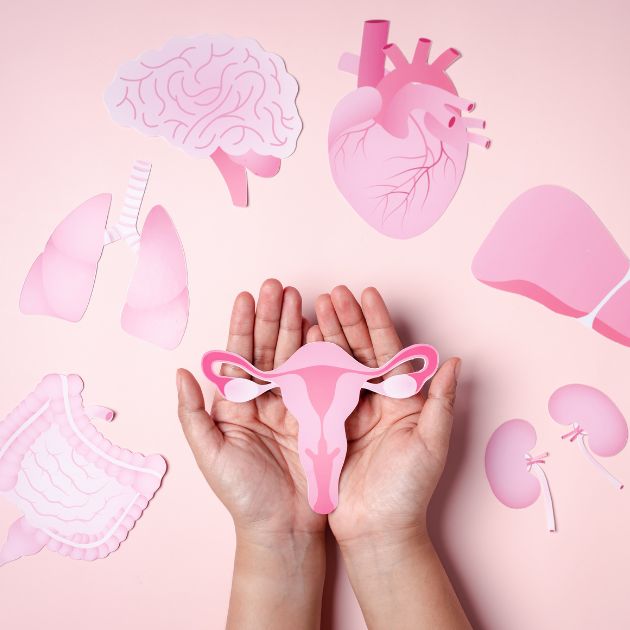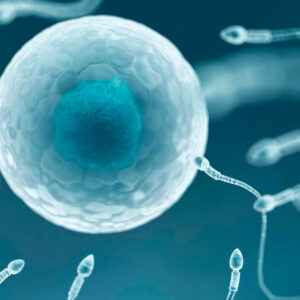When we feel like our reproductive organs have very specific jobs they’re supposed to do, it can feel really frustrating when things don’t seem to be working “properly.” Painful or inconsistent cycles, irregular bleeding, and anovulation are just a few of the things our bodies can do that leave us scratching our heads, irritated that our bodies aren’t doing everything on schedule, and wondering if something bigger may be going on.
If you’re experiencing kinks in your body’s reproductive routine, please know you’re not alone, and if you’re frustrated to discover these concerns while trying to conceive, there is still plenty of hope for you, friend.
Let’s talk about anovulation–what it means, what you might be experiencing, and what you can do about it.
Before we dig in, please know that your worries are valid if you’re concerned about not ovulating each month. Finding out that your body isn’t doing what it should can be a terrifying reality.
The good news is that we live in a world with abundant information about anovulatory cycles. AND there are plenty of treatment options to remedy this condition and various means to grow a family when the “usual methods” aren’t working.
Don’t let an anovulation diagnosis get you down–stay with us as we go over everything you need to know about overcoming this reproductive hurdle.

This site contains affiliate links, meaning that we earn a small commission for purchases made through our site. We only recommend products we personally use, love, or have thoroughly vetted.
- Anovulation 101: What is It?
- Can You Still Get a Period Without Ovulation?
- The Most Common Causes of Anovulation
- Signs You Might Not Be Ovulating
- How Do You Receive an Anovulation Diagnosis?
- Is Fertility After Anovulation an Option?
- Anovulation Treatments You Should Know About
- Don’t Let Anovulation Get in the Way of Growing Your Family
Anovulation 101: What is It?
Let’s be real: “Anovulation” is a fancy word many of us couldn’t define if our lives depended on it. But it’s not as complex as it seems. Before we dive into an explanation, though, it’s helpful to understand what’s SUPPOSED to happen in our bodies each month.
In an ideal situation, you ovulate about mid-way through your cycle. Ovulation is the time when your ovaries release an egg for possible conception. Your egg will travel through your fallopian tubes before reaching its final uterine destination.
If the egg isn’t fertilized during ovulation, your body will shed it during your period.
Here’s the thing about anovulation–that ideal situation stops before it starts. With anovulation, none of the abovementioned things are happening.
With anovulation, the body doesn’t release an egg. Therefore, fertilization is impossible since you can’t make a baby without an egg.
While chronic anovulation is the reality for some hopeful parents, for most, this condition is only temporary.
In fact, even if you have regular periods, there’s a good chance you’ll experience an anovulatory cycle at some point. Just because it happens once or twice doesn’t necessarily mean it’s a new constant in your reproductive health.
If you struggle with consistent anovulation, here’s the thing: it isn’t the symbolic period at the end of a sentence. Plenty of options exist if you’re trying to grow your family.
Can You Still Get a Period Without Ovulation?
One thing that can be really confusing for some women is that they experience vaginal bleeding and consider it a period, but it occurs irregularly and, if they’re taking ovulation tests, they might never get the LH surge that suggests ovulation is imminent.
To learn more about this phenomenon, I chatted with Dr. Karen Matta-Toomey from Carenet Manasota, a board-certified OB/GYN from Bradenton, FL.
How can someone have a period, I wondered, if they don’t appear to be ovulating?
She explained that our bodies can bleed for different reasons.
“Menstrual bleeding occurs due to changes in hormone levels, namely a decrease in progesterone. Women produce progesterone from several sources, especially the Corpus Luteum, which is created after an egg is released during ovulation. So, when women are not ovulating, they are not producing enough progesterone, which can throw off their cycles.”
This helps explain why people have irregular cycles when they’re anovulatory. But it’s what she said next that helped explain why these people might still experience random periods of bleeding.
“However,” she continued, “they can still bleed from variations in hormones, but it is usually not regularly timed bleeding.”
This is why it’s possible to have periods during an anovulatory cycle, even if those cycles are inconsistent.
Is PMS Common During an Anovulatory Cycle?
Ahh, PMS–the bane of our menstrual existence. Premenstrual syndrome triggers mood swings, fatigue, cramping, and a general disdain for our monthly cycle (and everyone in our household).
But does it still happen if we don’t go through ovulation?
Annoyingly, yes.
According to Dr. Matta-Toomey, “PMS occurs due to the changes in our hormone levels, so yes, people with irregular or anovulation can experience these symptoms since their hormones are off-balance.”

The Most Common Causes of Anovulation
While not ovulating is frequent among people struggling with infertility, the reason for it isn’t always the same. Often, the underlying cause of anovulation is one of the situations or conditions below:
1. Weight
Just because you’re overweight or underweight doesn’t mean you’ll automatically struggle with irregular cycles. Sometimes, though, when your body mass index (BMI) is considered too low or too high, it can potentially cause anovulation.
Being either underweight or overweight can have an impact on fertility, but we say this with a word of caution. Some doctors insist weight is the cause of fertility issues without further investigation, and if this is your experience, we strongly recommend seeking another opinion.
It’s important to consider your entire health when looking at your fertility, and weight is an important piece of the puzzle, but it’s only one small piece. Also, there are certain conditions that affect your menstrual cycle, like polycystic ovary syndrome (PCOS), that can actually cause weight gain, rather than result from it. That’s why it’s essential to find a doctor who will look at a comprehensive picture of what’s happening with your fertility.
Note: If using a BMI calculator to figure out healthy weight objectives, try not to stress too much. While these numbers can be a starting point, studies show they’re not as clear-cut as doctors once thought.
2. Stress
With so many things to think about in our day-to-day lives, it’s no wonder the American Institute of Stress states that 35% of adults regularly deal with “extreme stress.”
While there is such a thing as “good stress”–you know, the butterflies you get in your stomach before a big date or the excitement you feel about taking a family-friendly vacation–excessive amounts of negative stress can negatively impact your overall health.
This includes adverse effects on ovulation…prepare for some medical mumbo jumbo ahead…
Stress-induced anovulation, often referred to as functional hypothalamic amenorrhea (FHA) by scientists, happens when high stress levels and other “energetic imbalances” decrease the hypothalamic gonadotropin-releasing hormone (GnRH) in our systems.
Translation: high stress levels impact our hormones and can lead to anovulation.
This is part of the reason we know there actually can be a correlation between stress and infertility, even though ne’er-do-well friends who tell us to “just relax” in order to get pregnant are missing many important components of the fertility equation.
If you’re experiencing anovulation and high stress levels, why not carve out some time for self-care? Go for a daily stroll, bust out your favorite journal, or practice guided meditation–it doesn’t matter what you do as long as you feel good about it.
3. PCOS
PCOS and infertility are a dynamic duo that no one wants or needs; I know I certainly didn’t when I got diagnosed!
In addition to causing irregular periods, excessive hair growth, acne, and fatigue, polycystic ovarian syndrome (PCOS) is a condition that likes to wreak havoc on our ovaries. More specifically, the disorder causes “polycystic ovaries,” which basically means we have an abundance of small cysts and follicles that lead to frustrating hormonal imbalances.
Thanks to these hormonal irregularities, our bodies don’t always make enough luteinizing hormone (LH) or follicle-stimulating hormone (FSH)–both of which are needed to release eggs during ovulation.
Luckily, there are plenty of options for getting pregnant with PCOS. Talk to your doctor if you think you might have this condition. They can run tests like bloodwork and ultrasounds to determine what’s going on and establish a plan for treatment.
4. Hormonal Imbalances
Without sounding like a broken record, it’s probably evident that our hormone levels play a vital role in ovulation. If you have any imbalance of any kind, it can definitely lead to problems with your cycle, including anovulation.
Imabalanced hormones alone are enough to cause anovulation, even without other contributing factors.
If you suspect that hormonal imbalances, you can talk to your doctor about doing a blood panel, or you can take matters into your own hands and test at home. We love the Women’s Fertility Test from Everlywell, which measures your estradiol (a form of estrogen), luteinizing hormone (LH), follicle-stimulating hormone (FSH), thyroid-stimulating hormone (TSH), and total testosterone levels.
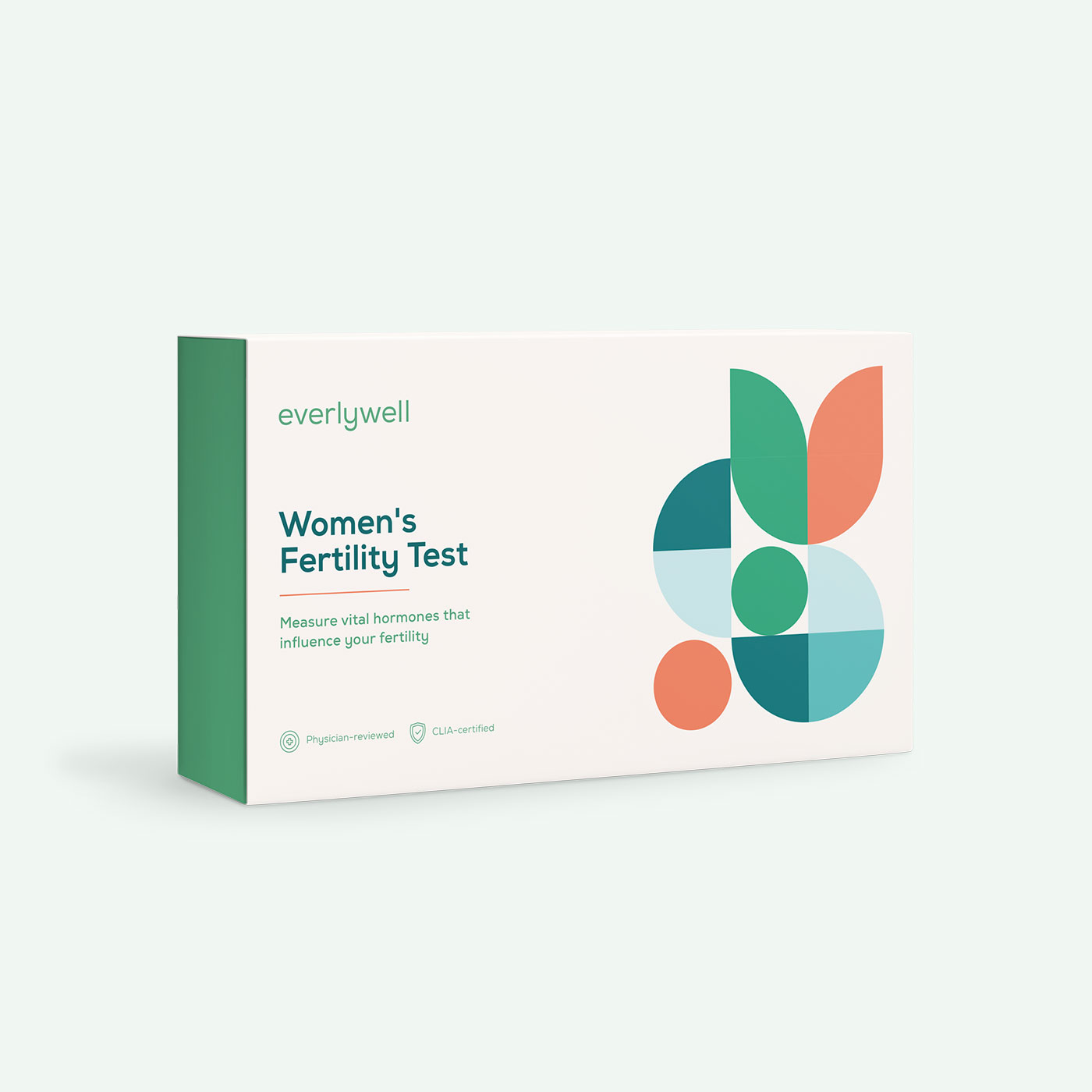
We also love that Everlywell has added telehealth options, so if you don’t already have a provider you trust–or if yours isn’t taking potential hormonal imbalances seriously–they give you an easy, convenient way to connect with an expert who can support you!
5. Hypothyroidism
Hypothyroidism occurs when the thyroid gland doesn’t make enough thyroid hormone, which leads the body produces an increased amount of the hormone prolactin. And too much prolactin can lead to anovulation.
Why, might you ask?
According to the American Society for Reproductive Medicine (ASRM), increased prolactin levels inhibit the production of other hormones necessary for ovulation, such as FSH, progesterone, and estrogen.
Thankfully, there are some trusted treatment options for an underactive thyroid, AKA hypothyroidism.
If you suspect this could be your problem, most hormone panels will test your thyroid, and of course, we love the At-Home Thyroid Test by Everlywell.
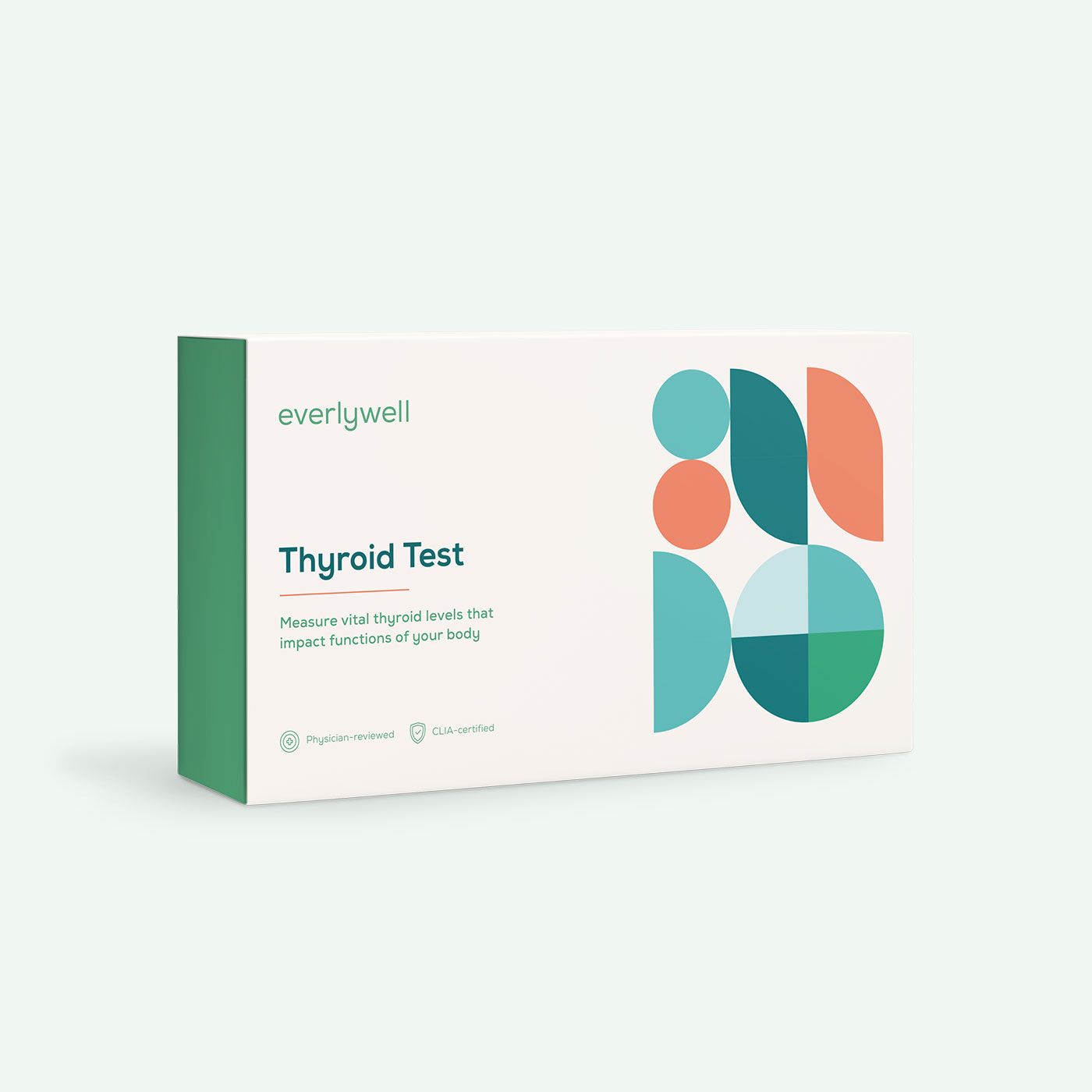
6. Exercise Habits
We always hear about the importance of diet and exercise, but if you’re struggling with anovulation, did you know that over-exercising could potentially be a factor? If you happen to be a marathoner or training for an endurance event, you might want to consider your exercise routine if you’re searching for lifestyle changes to improve your ovulation cycles.
A 2017 study shows that individuals who exercise vigorously for more than 60 minutes daily might be more likely to experience anovulation.
Many doctors suggest decreasing the time you spend working out or consider gentler activities, like walking or yoga.
Signs You Might Not Be Ovulating
One of the most common reasons you might figure out that you’re not ovulating is because of irregular or absent periods. According to Dr. Matta-Toomey..
While menstrual issues aren’t the only sign, they’re certainly the most obvious. According to the Cleveland Clinic, you might also look for these other anovulation symptoms:
- Extremely heavy periods
- Extremely light periods
- Inconsistent basal body temperatures (BBT)
- Decrease in or absence of cervical mucus
If you use a period or ovulation tracker app and notice things seem off, this might indicate that something’s going on with your cycle, too.
How Do You Receive an Anovulation Diagnosis?
Whether your period is missing, irregular, or seems off, you’re probably ready to get answers from your doctor, right?
If you’re anything like me, though, you might feel nervous about what’s involved with getting a diagnosis. While getting any kind of infertility diagnosis can be really scary, it also usually comes with some potential solutions, so we’re here to offer that gentle nudge to go talk to your care provider.
I was terrified that figuring out my underperforming reproductive system would be time-consuming, painful, and challenging.
But all it took was some bloodwork and a transvaginal ultrasound to inform my doctor that I have a run-of-the-mill case of polycystic ovary syndrome (PCOS).
While you might not have the same diagnosis as I do, you can expect the same types of tests, at least as a starting point.
A simple blood test, for instance, will provide all the information your doctor needs about your thyroid, prolactin levels, and progesterone levels. Your physician can figure out what’s happening using the data collected from this, combined with an ultrasound of your reproductive organs.
Sometimes diagnoses don’t come quickly or easily, though. Make sure you’re working with an OB-GYN or Reproductive Endocrinologist you trust and who truly listens to your symptoms AND your questions.
Is Fertility After Anovulation an Option?
I’ve tried to hint at this already, but let me state it plainly:
Just because you’re not ovulating doesn’t mean you can’t get pregnant!
Our society is privileged to have more reproductive treatments than at any other time in history. There are plenty of ways to grow a family–even if your ovulatory cycle isn’t playing nicely for the moment.
You might assume that the only way to get pregnant during anovulation is through ART infertility treatments, like intrauterine insemination (IUI) or in vitro fertilization (IVF).
But these aren’t the only options, and in fact, any good doctor will run plenty of tests and suggest trying other methods first, unless there are reasons those methods absolutely will not work for you.
The most common step for people trying to conceive without ovulating is medication such as Clomid, which stimulates the release of an egg.
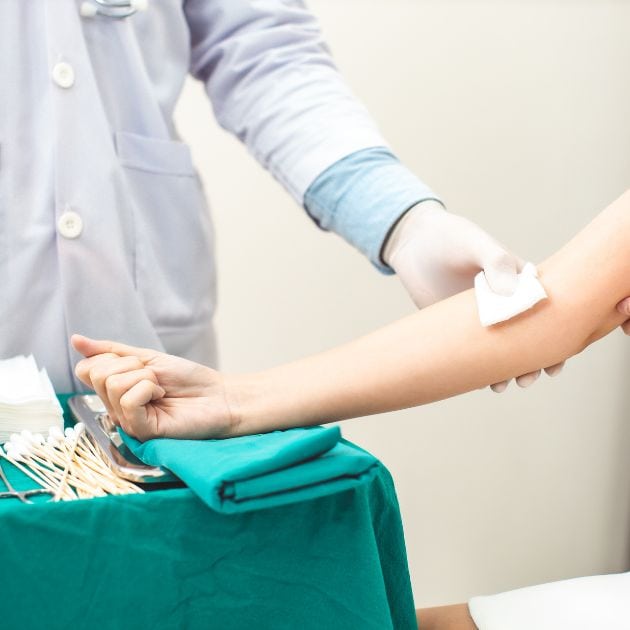
Anovulation Treatments You Should Know About
Here’s the thing about treating anovulation: it’s usually pretty straightforward.
The solution can be as simple as adjusting your current medications or adding in a new one, clomiphene citrate (Clomid), for instance.
Finding the proper medication protocol for your body might take a little time, but with some patience and effort, it is possible to get your ovulation cycle back on track.
If you want to avoid taking medications to induce ovulation, however, there are lots of things you can try.
Lifestyle Changes to Help Anovulation
Regarding the treatment of anovulation, Dr. Matta-Toomey says that: “The most common causes I would see in practice were weight changes (both gain and loss) and stopping hormonal methods of birth control.”
Lifestyle changes like weight management, stress relief, stopping hormonal birth control, and adjusting your workout routine might be what to help get your body back on track and induce ovulation.
The moral of the story is that anovulation is very likely temporary. From small changes in your day-to-day life to medical interventions, there are plenty of ways to hit the reset button and get your body back to doing what it’s supposed to.
Note: If you discontinue using hormonal birth control, please realize that it takes time for your body to rebalance. Often, ovulation will begin within just a few weeks, but sometimes, it can take much longer. If you’re trying to grow a family post-birth control and haven’t gotten pregnant within a year, please make an appointment with your doctor.
Don’t Let Anovulation Get in the Way of Growing Your Family
Whether you want to have a baby or ensure that your body’s doing what it needs, finding out that you’re experiencing anovulatory cycles can be scary.
Just remember that for most people, it’s not the devastating diagnosis you might think it is.
During my conversation with Dr. Matta-Toomey, she told me that most people with anovulation will eventually, or at the very least occasionally, ovulate. While anovulation is undoubtedly frustrating for hopeful parents, it’s not the final chapter in their story.
In Dr. Matta-Toomey’s words: “Do not give up hope.”
Just speak with your doctor and create a plan to ensure you’re receiving the care and options you deserve.
Has your doctor diagnosed you with anovulation? What treatment solutions did they suggest?

